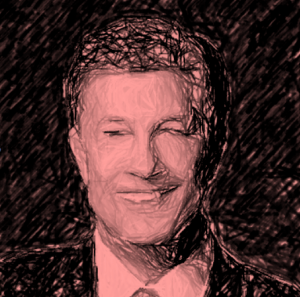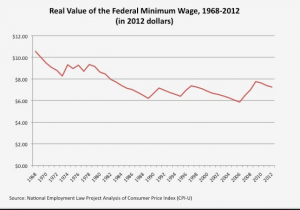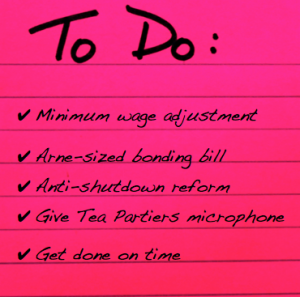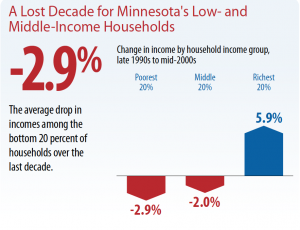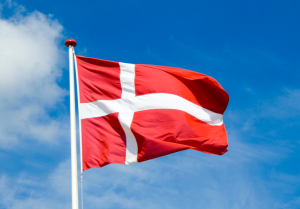 When presidential candidate Bernie Sanders explains why Americans shouldn’t fear his “democratic socialism,” he usually points to Scandinavia.
When presidential candidate Bernie Sanders explains why Americans shouldn’t fear his “democratic socialism,” he usually points to Scandinavia.
“I think we should look to countries like Denmark, like Sweden and Norway, and learn what they have accomplished for their working people. In Denmark, there is a very different understanding of what “freedom” means… they have gone a long way to ending the enormous anxieties that comes with economic insecurity. Instead of promoting a system which allows a few to have enormous wealth, they have developed a system which guarantees a strong minimal standard of living to all — including the children, the elderly and the disabled.”
His opponent, Senator Hillary Clinton, who clearly understands American exceptionalism biases, quickly shuts down Sanders’ arguments with a smug shrug: “We are not Denmark.”
By continually citing countries other than America to explain democratic socialism to Americans, Senator Sanders is hurting his case. Instead of pointing to Norway, he should more consistently cite the New Deal.
First, let’s consider the definition of “democratic socialism” offered by Democratic Socialist’s of America:
“Democratic socialists believe that both the economy and society should be run democratically—to meet public needs, not to make profits for a few. To achieve a more just society, many structures of our government and economy must be radically transformed through greater economic and social democracy so that ordinary Americans can participate in the many decisions that affect our lives.”
Truth be told, the United States of America is no stranger to this kind of democratic socialism. It was brought to us during some of the most successful and popular presidencies of the past century. Teddy Roosevelt, Franklin Roosevelt, Harry Truman, and Dwight Eisenhower enacted a whole series of popular measures that fit under this definition of democratic socialism. At the time their ideas were proposed, they were criticized as infeasible, un-American and socialistic, just as Sanders’ ideas are today.
Therefore, Senator Sanders should be explaining his democratic socialism with American examples that a large majority of Americans already know and love. Sanders might say something like this:
You want to know what democratic socialism is? When the great Republican Teddy Roosevelt dissolved 44 corporations to protect the middle class, and when he protected ordinary Americans from the railroad companies and other big corporations, his critics said “you can’t pass that, because it’s socialism.” But he passed them anyway, because the American people demanded it.
When the enormously popular Franklin Roosevelt used government funding to put Americans to work building community infrastructure, they said “you can’t pass that, because it’s socialism.” When FDR proposed a Social Security system of government-run pensions that lifted millions of American seniors out of poverty, conservatives said “you can’t pass that, because it’s socialism.” But he passed those things anyway, because the people demanded it.
When Harry Truman enacted Medicare, people like Ronald Reagan called that socialism too.
And you know what? When Republican Dwight Eisenhower invested in an enormously expensive interstate highway system and had 90% income tax rates on the ultra-wealthy, they said it again: “You can’t pass that, because that’s socialism.” But he passed those things anyway, because the American people demanded it.
And despite the dire predictions from critics, America’s economy prospered under these policies that were all predicted to be catastrophic for the economy.
So in 2016, when the defeatist “no you can’t” crowd tells Americans “you can’t pass bills to provide higher education and health care to all, because that’s socialism,” I get my inspiration and courage from Teddy, FDR, Give ‘em hell Harry and Ike. Because of them, I know America can overcome the cynics’ name-calling and naysaying to do great things for the middle class now, just as we did then.”
Democratic socialism is already in America, and it is enormously popular. Surveys consistently show that Americans are vehemently opposed to cutting or eliminating democratic socialist programs such as Medicare, Social Security, and the minimum wage.
Americans not only have embraced democratic socialism in the past, they strongly support it for the future. A recent GBA Strategies poll shows that likely 2016 voters overwhelmingly support a whole range of Sanders’ ideas being dismissed as socialist ideas lacking sufficient political support: Allowing governments to negotiate drug prices has 79% support. Medicare buy-in for all has 71% support. A $400 million infrastructure jobs program has 71% support. Debt-free college at all public universities has 71% support. Expanding Social Security benefits has 70% support. Taxing the rich at a 50% rate — the rate under conservative icon Ronald Reagan — has 59% support, and only 25% in opposition. Breaking up the big banks has 55% support, and only 23% in opposition.
This is hardly a portrait of a nation that opposes democratic socialism. Overwhelming support for democratic socialism is already there, ready to fuel a 2016 presidential candidate. But for two reasons, Senator Sanders needs to cite American parallels to explain his approach, not European.
First, citing examples of American policies will help build confidence that bold measures can be enacted over fierce opposition now, just as they were in the days of Teddy, FDR, Truman and Ike. Second, citing American examples will paint Sanders’ democratic socialism label and his policy ideas red, white and blue, rather than just red. It will show that such ideas have been embraced in the past by idolized Republicans and Democrats. It subsequently will normalize democratic socialism.
Americans are in a very nationalistic, ethnocentric and nostalgic mood. So, rather than continually pointing to the Rikstag, Storting, and Folketing to explain democratic socialsm, Sanders needs to point to the faces on Mt. Rushmore.
Note: This post was chosen for re-publication in MinnPost’s Blog Cabin feature.
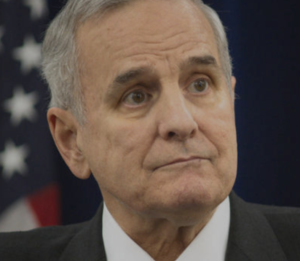 As we count down Mark Dayton’s final days as Governor of Minnesota, it’s worth reflecting on one of the more peculiar figures in recent Minnesota political history.
As we count down Mark Dayton’s final days as Governor of Minnesota, it’s worth reflecting on one of the more peculiar figures in recent Minnesota political history.
 When presidential candidate Bernie Sanders explains why Americans shouldn’t fear his “democratic socialism,” he usually
When presidential candidate Bernie Sanders explains why Americans shouldn’t fear his “democratic socialism,” he usually 